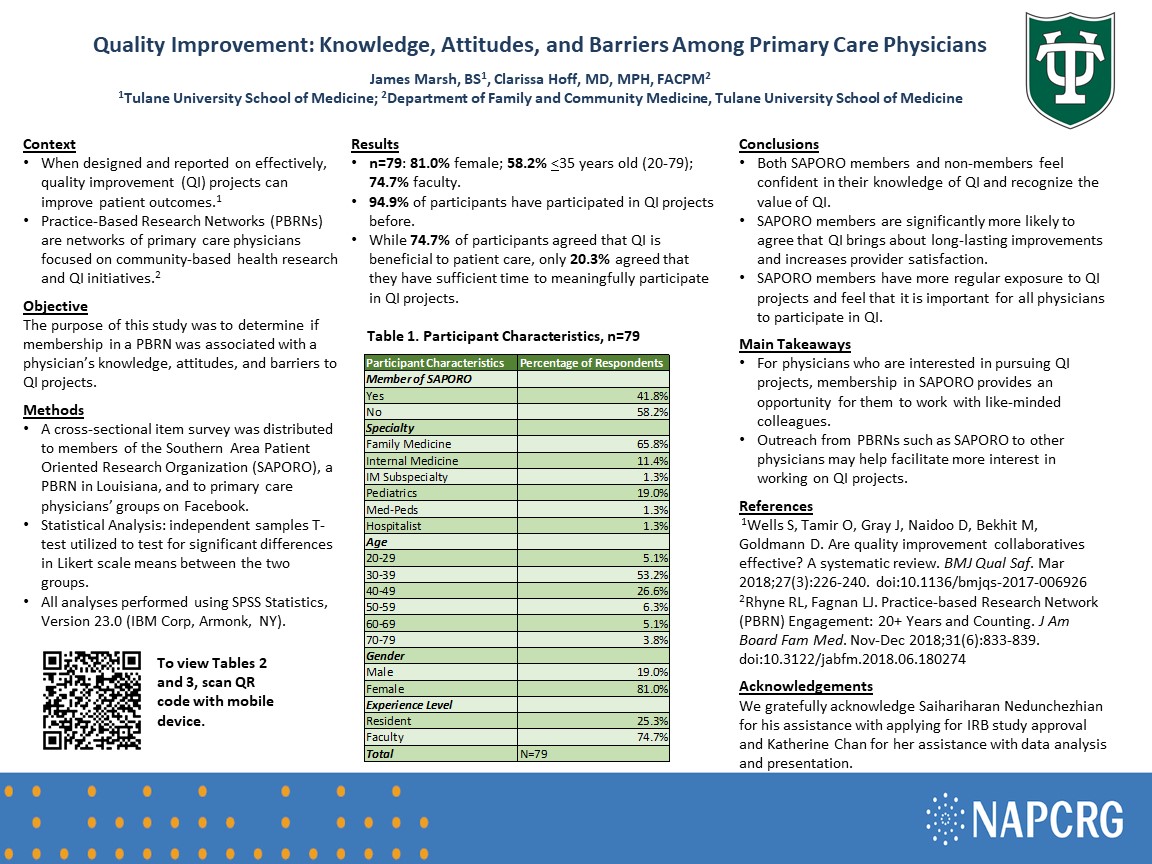PRP070: Quality Improvement: Knowledge, Attitudes, Experiences, and Barriers Among Primary Care Physicians
James Marsh, BS; Clarissa Hoff, MD, MPH
Abstract
Context: Quality improvement (QI) helps improve clinical care and patient outcomes. However, knowledge, experiences, attitudes, and perceived barriers to QI vary among physicians. Given that primary care physicians (PCPs) play a significant role in patients’ wellness, attitudes toward QI practices within this group may impact patient care. Learning about these attitudes will provide helpful insight on designing more effective QI projects. Objective: The perceived benefits and burdens of QI in medicine are being investigated by surveying PCPs at medical institutions. Study Design and Analysis: Mixed methods research. A survey questionnaire is used to define the role of the participant in the medical field, gauge their knowledge of and experiences with QI, determine their attitudes toward QI, and ask about their perceived barriers to QI. Each participant is given the option to participate in a brief interview to elaborate on their responses. This will provide depth and context to certain experiences with and perceived barriers to QI. Setting: This study aims to capture a wide cross-section of PCPs, so the setting includes hospital care, academic medicine, private practices, FQHC, federal employees, and any other caregiving sites. Population Studied: Participants in the study are residents and attending physicians in the field of primary care. This includes physicians in family medicine, internal medicine, pediatrics, combined internal medicine and pediatrics, and general practitioners. Anyone who is not a physician is excluded from the study. Outcome Measures: The primary study outcome is the average response provided regarding participants’ knowledge, experiences, attitudes, and perceived barriers to QI. A key secondary outcome is any association between provider characteristics and the nature of their QI responses. Another secondary outcome is qualitative data from interviews that provides context for participants’ survey responses. Results: It is anticipated that participants will be knowledgeable of QI and its benefits. Their experiences with QI may vary by provider characteristic. Expected Outcomes: Attitudes and perceived barriers to QI may be associated with their experiences. While participants may understand the benefits of QI, they might also report that the added burden of QI to their workload makes it more challenging to participate in these types of initiatives.

Diane Harper
harperdi@med.umich.edu 11/21/2021Thank you for sharing with us at NAPCRG.